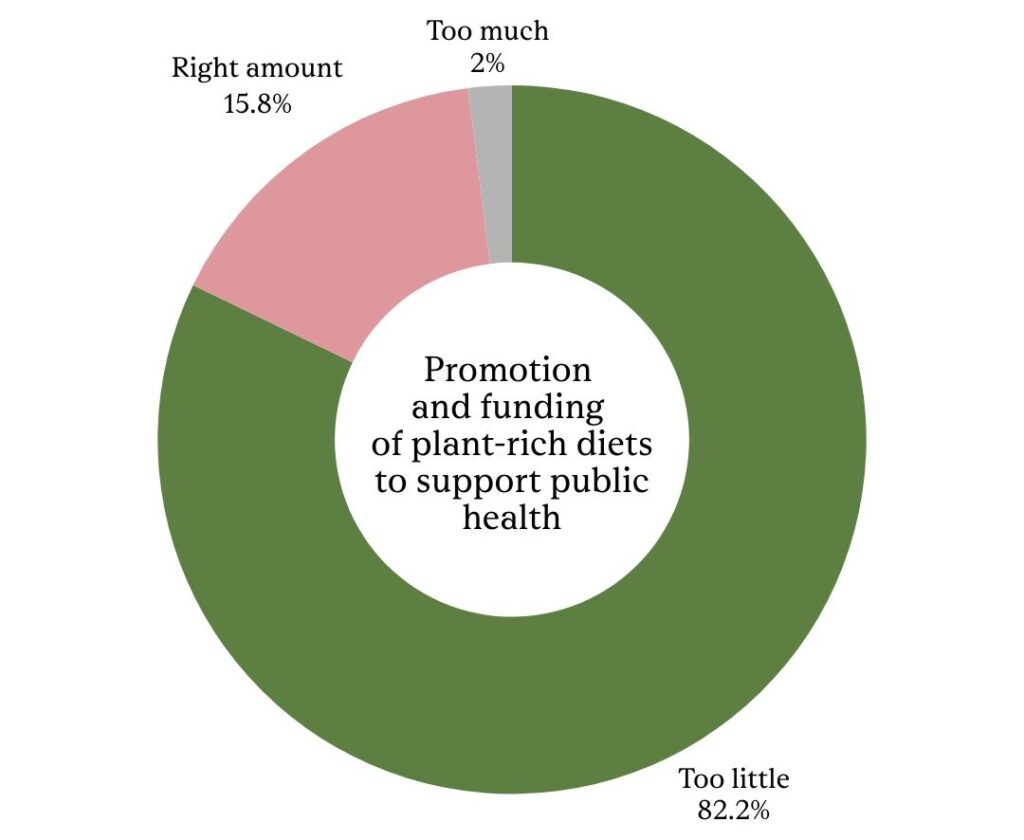
Over nine in 10 health professionals in Europe feel consumers eat too much meat, and 70% believe the livestock industry undermines science, shows a new poll.
Europe’s doctors unanimously agree that meat consumption levels are too high and these products should carry health warnings, according to a new survey.
Conducted by Madre Brava, the pollsters asked 600 doctors and dietitians in five European countries about the continent’s meat-eating habits, highlighting grave concern about the public health effects across the board.
They found that 91% of health professionals think average meat consumption exceeds health levels in Europe, and 84% believe this is a public health concern in need of reform.
The respondents put the blame on both government and industry, and called for red and processed meat products to carry warning labels about their health impacts (cited by 95%).
“Healthcare professionals across Europe are clearly gravely concerned that people are eating too much meat,” said Madre Brava CEO Vicky Bond. “This overconsumption means people are getting sick from preventable diseases like heart disease and cancer, and struggling unnecessarily with poor health.”

Meat industry is undermining nutrition science, say doctors
Most of the doctors and dietitians surveyed (92%) agreed that diets high in red and processed meats increase the risk of heart disease and some cancers. This is backed by swathes of research. In 2024, a Harvard University study found that people who eat a higher amount of plants in their diet see drastic reductions in the risk of developing cardiovascular disease and coronary heart disease.
And this year, a large review revealed that no amount of processed meat is safe for human health. The equivalent of one hot dog increases the likelihood of colorectal cancer by 7% and ischemic heart disease by 2%, and eating as much as two slices of ham raises colorectal cancer risk by 26%.
In Madre Brava’s survey, 90% of health professionals said current levels of meat consumption in Europe contribute to increased spending in an already stretched healthcare system. In the UK alone, reducing per capita meat consumption to two to three servings each week could prevent 45,000 premature deaths and cut annual national healthcare costs by £1.2B.
And research by the Office of Health Economics estimated that if England were to adopt a completely plant-based diet, the National Health Service would see a net benefit of up to £18.8B a year.
However, the biggest roadblock in the protein transition is the livestock sector, which has a deep influence on policymaking globally. More than seven in 10 (72%) doctors agree that the meat industry is trying to undermine the scientific evidence about the health detriments of eating too much red or processed meat.
This is evidenced by the fact that most studies suggesting red meat is good for you are funded by livestock producers. Most of Europe’s health professionals (89%) also feel that large food companies have too much influence over national policy decisions.
On a similar theme, three-quarters (76%) of them say government subsidies contribute to the overconsumption of meat and the related health issues. Research has found that 82% of subsidies under the EU’s Common Agriculture Policy have gone to animal agriculture, four times higher than plant-based farming, leading to calls for a reform of the framework.

Europe’s doctors rue the lack of government spending on plant-based food
While the aggregated results prove that Europe’s doctors are aligned on their concerns about meat and public health, their attitudes on certain questions vary depending on the country.
For example, in France and Spain, fewer doctors think the meat industry is actively undermining scientific evidence about health implications (though still above 60%), whereas those in Italy and the UK are relatively less likely to believe government subsidies are part of the problem.
In fact, one in five Italian health professionals (19%) actually thinks red and processed meat shouldn’t carry health warnings. In stark contrast, every doctor surveyed in England is in favour of such a move.
Italians are instead most interested in a reform of national dietary guidelines to align with the latest research on meat’s health impact (80%), though this varies widely across Europe. In Germany, only 29% want this change – but as Madre Brava points out, this is likely because the country’s guidelines were updated last year, and already emphasise a diet comprised of 75% plants.
The surveyed health professionals showed strong support for a reduction in meat-based meals in public institutions like schools and hospitals, a move supported by 87% of them.

Over four in five (82%) of them also feel there’s too little government funding to promote plant-rich dietary patterns for improved public health. This sentiment is strongest in France (94%) – and rightly so – and weakest in Italy (68%).
“We need action, both from the supermarkets shaping our food systems, and from governments, to rebalance our diets,” said Bond. “This includes adding more plant proteins to the mix. It is not about cutting out meat entirely, but health professionals are seeing how essential it is for us to eat much less meat and have more plant-rich diets for the sake of our health.”
The post Almost Every Doctor Thinks Meat Should Carry Health Warning Labels appeared first on Green Queen.
This post was originally published on Green Queen.